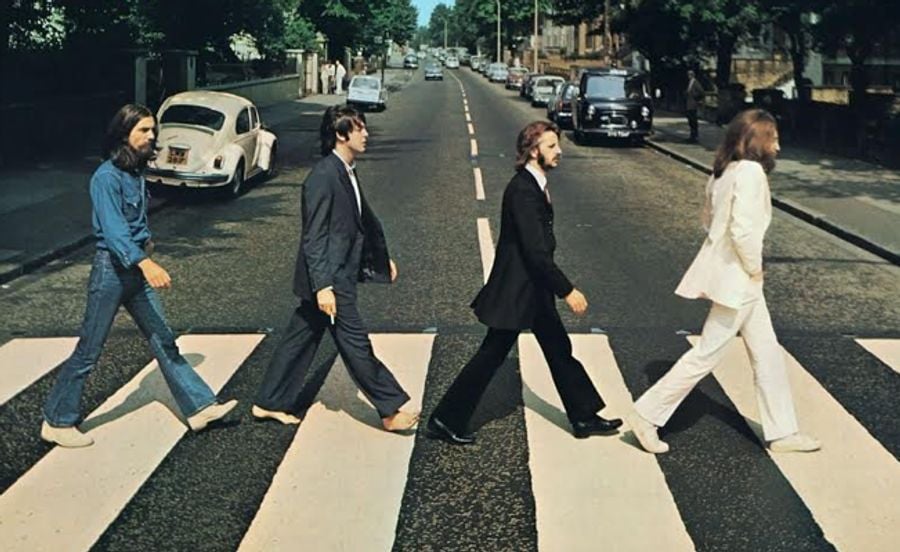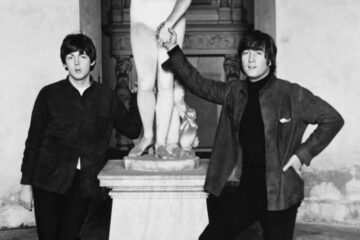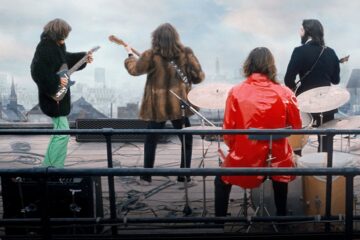The Beatles album Abbey Road is thought of, quite rightly, as a masterpiece. Structurally it outstrips all of their previous albums with songs which straddle the line between experimental pop and a piece of art, the record was the last we’d ever get from the Fab Four and it remains a timeless classic.
One song which completes the album, the final fully-finished recording we’d get from John Lennon, Paul McCartney, George Harrison and Ringo Starr perfectly sums up their cosmic philosophy and allows Ringo his only drum solo which leaves us as fans with a warm fuzzy feeling. The song, of course, is ‘The End’.
‘The End’ is on side two of the record and operates as a vital part of the Abbey Road medley, a track which just so happens to be Ringo’s favourite piece of The Beatles work. It sits proudly with a clear distinction from the rest of the songs on that medley, it is deliberately unfinished and determinedly abstract.
Despite the experimentation, the track did allow for the band to lay down perhaps some of their best guitar work. The most complete set of solos in a Beatles song came at the very end of their career. The song features nine guitar solos in total with each one lasting around two bars with McCartney, Harrison and Lennon all given three apiece. It makes for a perfect reflection of their talent and their individual personalities.
Naturally, Harrison and McCartney provide the more eloquent expressions with their guitar solos but there’s something fitting about John Lennon’s third and final effort. Not only does he force it over the line with brute energy, like he appeared to do with almost everything he did, but he also picked up the final solo acting as the final recorded moments of The Beatles—the band he started all those years ago.
The song also featured a most curious thing, a Ringo Starr drum solo: “Ringo would never do drum solos,” Paul McCartney once said. “He hated drummers who did lengthy drum solos. We all did. And when he joined the Beatles we said, ‘Ah, what about drum solos then?’ and he said, ‘I hate ’em!’ We said, ‘Great! We love you!’ And so he would never do them. But because of this medley I said, ‘Well, a token solo?’ and he really dug his heels in and didn’t want to do it.”
John Bonham and Ginger Baker wouldn’t exactly be quaking in their boots form the ‘solo’ Ringo provided but it was uniquely a Starkey fill. “I don’t think he’s done one since,” confirmed McCartney.
Written by McCartney, it was one song that Lennon credited the rest of his band on rather than himself: “That’s Paul again, the unfinished song, right?” Lennon replies in 1980 while speaking to David Sheff of Playboy.
“Just a piece at the end. He had a line in it, (sings) ‘And in the end the love you take is equal to the love you make,’ which is a very cosmic, philosophical line— which again proves that if he wants to, he can think.”
Aside from the slight barb, the comment was correct, ‘The End’ saw Paul McCartney at his most philosophical, using the lyrics of the track to leave a lasting impression on their fans. At the time of the album’s recording, the writing was on the wall and the likelihood of recording a new LP with The Beatles was seeming further and further away.
It may be then that Macca was trying to leave a final note for the fans which had given them all their dreams. But it was also McCartney the professional songwriter who was in charge, as he remembers in 1994: “We were looking for the end to an album, and ‘In the end the love you take is equal to the love you make’ just came into my head. I just recognised that would be a good end to an album. And it’s a good little thing to say—now and for all time, I think. I can’t think of anything much better as a philosophy, because all you need is love.
“It still is what you need. There ain’t nothin’ better. So, you know, I’m very proud to be in the band that did that song, and that thought those thoughts and encouraged other people to think them to help them get through little problems here and there. So uhh… We done good!”



